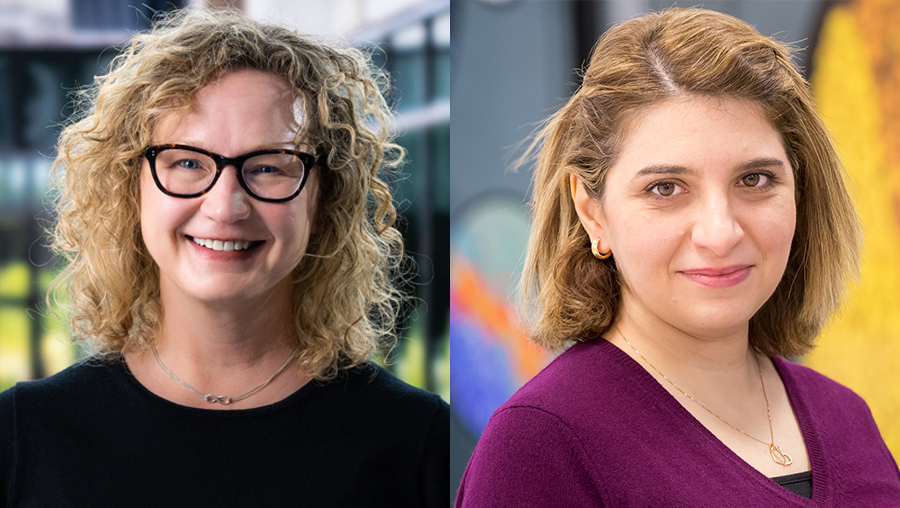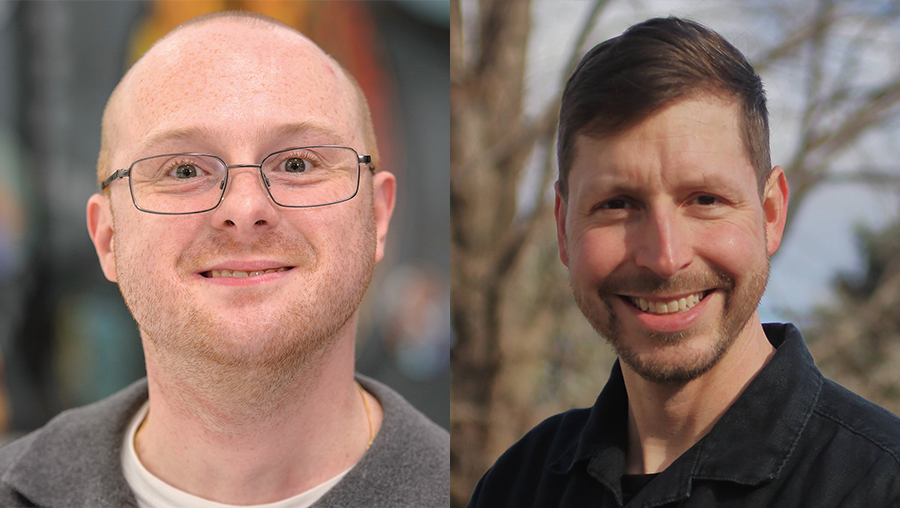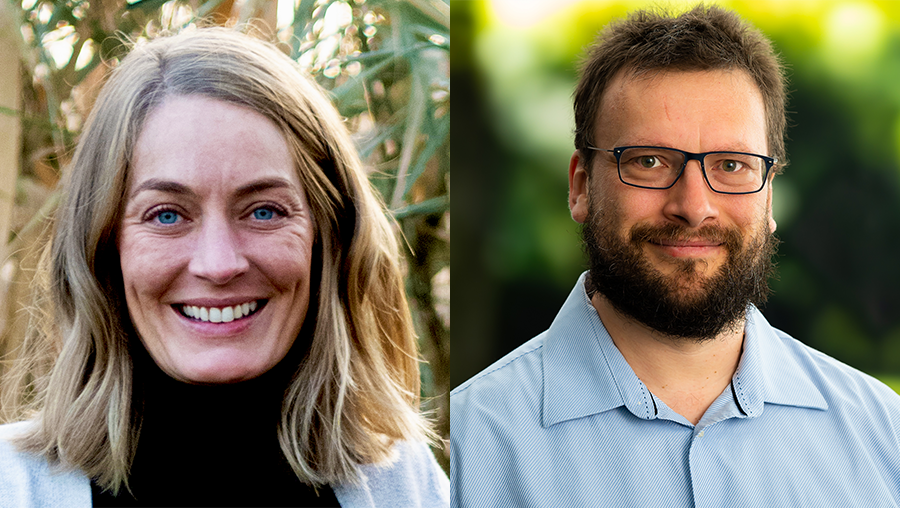
Beth Cerny, Marketing Communications Lead
Beth Cerny has served as the head of communications for the Argonne Leadership Computing Facility since 2012. She leads a team of writers and designers to deliver integrated marketing programs and communications across print, experiential and digital channels for users, staff, potential collaborators, and the Department of Energy. Beth’s responsibilities include partnering across ALCF to launch new systems and services, build brand and voice, and improve user touchpoints such as ALCF documentation and training.
One of her most notable efforts over the past few years has been leading Intel and HPE marketing team meetings to coordinate and collaborate joint plans in rolling out ALCF’s exascale system Aurora. These joint plans include writing early success articles, creating videos, establishing new training opportunities, pitching stories to media, and featuring ALCF experts in keynotes and podcasts.
Her research interests include improving the experience of the user community at the ALCF, balancing user and business needs with technology and staffing constraints. She uses her user-centered design training to improve user touchpoints at the facility. Over the past few years, Beth has spearheaded user research for the ALCF portal, interviewing Argonne researchers and teams within the ALCF division to build the user requirements, structure and design guide. She also works alongside computational science staff and training team to coordinate strategy and providing online resources in the ALCF user guides and website.
In addition to her day-to-day duties, Beth co-founded the Chicago chapter of Women in HPC in 2022, and participates in outreach activities that engage young women to choose careers in science and engineering. She also mentors staff and interns throughout the year.
Yasi Ghadar, Computational Scientist
Yasaman (Yasi) Ghadar joined the ALCF in 2016 as a postdoctoral researcher using molecular dynamic simulations to understand the mechanism of ion transfer in lithium-ion batteries. In August 2018, she joined the performance engineering team as an assistant computational scientist, continuing her work with the LAMMPS application and as a point of contact for ECP’s EXAALT ECP project. She also began helping to coordinate ALCF training events, including workshops and webinars. In December 2022, Yasi was promoted to the role of computational scientist at the ALCF. She was also selected to participate in Argonne’s 2022-2023 Strategic Laboratory Leadership Program, an executive leadership program designed for the laboratory’s emerging leaders.
This year, Yasi joined the ECP Training and Productivity team as a PI. To recognize her efforts in training, she was invited to chair project tutorials at next year’s ECP Annual Meeting. This year also saw Yasi serve as the deputy director of the Argonne Training Program on Extreme-Scale Computing (ATPESC), where she worked closely with ATPESC director Ray Loy to organize and hold the annual program in-person at Q-Center in St. Charles, IL, after two years of being a virtual event. In celebration of ATPESC’s 10th anniversary, the successful event included an evening talk from ATPESC founding director Paul Messina. Yasi played a key role in a number of other ALCF-hosted events, including leading the ALCF-NVIDIA GPU Hackathon and co-organizing the Aurora Center of Excellence Workshop. In addition, she initiated a multi-lab collaboration with OLCF and NERSC to cross-promote each other’s training events and opportunities to their respective user communities.
Yasi also contributed to the Argonne-led Lab Structure and Process initiative, serving as a committee member. Their goal was to identify aspects of the national laboratory structure and process that led to vulnerabilities for harassment. The committee’s findings were shared internally and externally to inform interventions and recommendations to prevent sexual and gender harassment at the lab, throughout the national laboratory community, and in the higher education community. She was awarded an Impact Argonne Award for her efforts on the committee.

Ben Lenard, HPC Systems & Database Administrator
Ben Lenard joined the ALCF in 2015 as an HPC systems and database administrator, responsible for overseeing the administration and improvement of databases, monitoring, Kafka, and non-HPC storage systems in the ALCF supercomputing environment. He has presented at Cray Users Group meeting as well as various Db2 events, and was a panelist at the 2022 Richard Tapia Celebration of Diversity in Computing Conference. In addition to his day-to-day responsibilities, Ben has been strong advocate for the ALCF and for computer science, volunteering for events like the Hour of Code, Northern Illinois University STEM Fest, and Argonne’s public open house.
Some of Ben’s notable 2022 activities included deploying Jenkins with ALCF colleague Brian Homerding for Polaris acceptance testing. The Jenkins deployment replaced a custom written application with an open-source package that provided similar functionality. Jenkins provided enhancements to acceptance testing such as Slack Messaging when a job failed. Ben also deployed ALCF’s centralized Kafka cluster that is used for business intelligence (BI) activities to act as a data stream conduit between source systems and their processes for data consumption. This year, Ben also contributed to a number of other Polaris deployment efforts, including helping the ALCF Advanced Integration Group with the PBS job scheduler and working with the ALCF BI team to help them obtain data.
Eric Pershey, Principal Software Development Specialist
Eric Pershey joined the ALCF in 2010 as a software development specialist in the Advanced Integration Group. In this role, he has tested, worked on, or ran on all the ALCF supercomputers. Eric designs and develops the integration and testing of PBSPro on ALCF’s next-generation computing systems. He also develops system tools for debugging problems using visualizations and instrumentation. Eric’s research interests are graph theory combined with bitwise operations, AI, large-scale data generation, processing, and fidelity of metadata in high-performance computing systems.
In 2022, Eric worked on integrating PBS into all of the ALCF’s new systems, including Polaris, EDTB, Crux, and Graphcore. He stress tested PBS on each system to make sure they could handle ALCF workloads. In 2022, he also built up ALCF infrastructure in a box called pbs-docker to emulate the ALCF’s real PBS environment by creating test jobs to stress the scheduler, OpenPBS, and PBSPro. He also created a test suite to push the scheduler to the limit by crushing it with jobs and measuring how it handles the workload to find weaknesses in the code. Eric has also spent a large amount of his time at the ALCF working on the annual Operational Assessment Report and mentoring students.

Katie Sims-Partacz, Division Finance Manager
Katie Sims-Partacz oversees finance and business operations for the ALCF. She leads the planning, execution, and oversight of the facility’s annual budget ($156 MM in FY2022). Katie has strong and diverse experience in various areas, including financial analysis, budgeting, accounting, procurements, and information technology.
Previously at Argonne, she worked for the Chief Financial Officer from 2016-2020, where she held positions of increasing responsibility in the accounting, procurement, and budget offices. She has extensive experience in financial reporting and sponsor relationships. Prior to joining Argonne, Katie worked in information technology and accounting roles at VCNA Prairie Material and Tripp-Lite.
In 2021, Katie received an Impact Argonne Award for a notable achievement in extraordinary effort. She took on management of the ALCF’s reporting for the Exascale Computing Project, as well as training several people – in the ALCF and Argonne’s Financial Management and Procurement Services division. Outside of ALCF, Katie is passionate about raising funds and promoting awareness for pediatric cardiovascular thoracic surgery research. In 2011, she launched a non-profit, Patching Little Hearts, and served as its president for one year. She continues as an advocate for congenital heart defect and breast cancer awareness. Katie has interests in skiing, live music, playing softball, and home improvement.
Brice Videau, Computer Scientist
Brice Videau joined the ALCF in 2019 as a computer scientist with a joint appointment with Argonne’s Mathematics and Computer Science division, focusing on code generation, meta-programming, optimization, and auto-tuning for HPC. As a part of the ALCF Performance Engineering team, Brice works on heterogeneous programming models, which are the programming models used to leverage accelerators and GPUs such as those will be used in Aurora. In 2022, Brice led the Exascale Computing Project’s HIP on Aurora project where he and his team are bringing the HIP programming model used on Frontier to the Intel GPUs, so application developers can reuse their HIP code and avoid the added work of porting their application to the SYCL programming model. Since last year, his team has seen the first release of their HIP backend called CHIP-SPV, and are closely working with application developers from ECP and other projects to bring their HIP applications to Aurora.
In 2022, Brice also co-led the development of the THAPI tracing infrastructure, where he and ALCF colleague Thomas Applencourt provided ALCF users with a lightweight tracing and profiling toolchain for heterogeneous programming models. This allowed application developers and performance engineers to quickly diagnose application performance, introspect high-level programming model utilization of accelerators, but also helped immensely when debugging applications and vendor provided runtimes. This year, on top of many quality improvements, they have added support for OpenMP as well as advanced trace visualization capabilities.